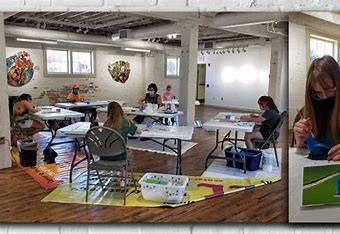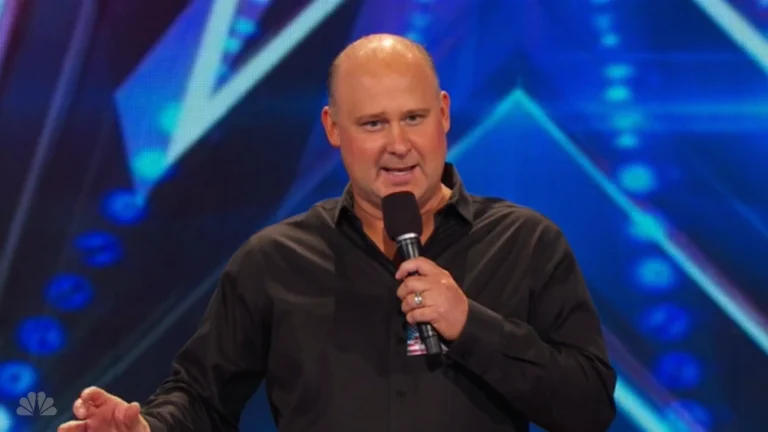By JP
Although neurodiversity is becoming a more popular topic, there is still a large knowledge and awareness gap. Bridging this gap and promoting more empathy and support can be achieved by highlighting the experiences of students who identify as neurodivergent.
I asked three Chestnut Hill College students from different years to reflect on neurodiversity and their experiences with socializing and class assignments.
One takeaway about socializing as neurodivergent students is social norms and social cues can be hard to understand. Bella Peron, a senior psychology major, explained that “A lot of times I don’t know if I’m overstepping on people’s boundaries. When I’m really interested in someone, I often want to hang out with them every single day, but I just know that that’s not how most people work. And it can also be a bit challenging telling people that you are neurodiverse because people are usually pretty more unaware than I thought originally, especially with autism, for example.”
Breze Howard, a sophomore computer science major, pointed out the importance of having a social group: “The more the merrier, pretty much, with college. If you need support, you’re gonna need to find a group of people that can help you. Cause if you don’t, then you’re gonna feel very misunderstood and it’s gonna feel very isolating.”
Ryan O’Hara, a sophomore exercise science major, emphasized balance: “You really gotta figure out your own balance. Mine, I’m not gonna lie, has been mostly socialization since I got on campus. But this year I’ve learned how to manage it a little bit better, kind of set aside time for assignments, and then when I’m not doing assignments, go find a friend, or text a friend, meet me here, and usually that’s the way it’s been working this year, so that’s kind of how I balance it.
Another important takeaway is that it can be hard for neurodivergent students to stay on task. Several interviewees shared concerns that teachers and professors need to have a better understanding of neurodivergence. Howard explained that, in the past, “behaviorally I feel like maybe they might not have understood me fully.”
O’Hara agreed: “I think that we have many issues that a lot of people don’t have, and therefore I think some professors especially are less used to seeing that. So you kind of got to talk them through it, kind of got to help them help you, if that makes sense. So yeah, it’s definitely been harder, but it’s definitely manageable too.”
Overall, being a neurodiverse college student can be tricky, but if we work with the college and with faculty, we can improve our support for neurodiverse students. To quote Howard, “Everybody needs support, whether they are neurodiverse or not. But it’s even more important if you are neurodiverse.”
The full conversations with Howard, Peron, and O’Hara are below.
JP: Hello, thank you so much for letting me interview you.
Breze Howard: My name is Breze Howard, I’m a sophomore and my major is computer science. I feel like my experience as a neurodiverse student here has been pretty good, because everybody here is pretty supportive and they are available to help me if I need it.
And it’s very similar to my high school experience too, where I was able to get the proper help that I needed for things too. Um, which I think is pretty great because, Everybody needs, support, whether they are neurodiverse or not. But it’s even more important if you are neurodiverse. Because a lot of, in a lot of environments, people don’t, aren’t able to get the support that they need.
JP: Can you elaborate more on that, if you can, Breze?
BH: Yeah, sure. I know that, pretty much, as a neurodiverse student, I know back when I was in elementary school, or maybe, yeah, elementary school. My school, they were helpful with helping me get stuff that I needed and everything but, I feel like I wasn’t really fully understood by my teachers and what not, looking back on it.
And, they were helpful with like the health aspects and everything but behaviorally I feel like maybe they might not have understood me fully.
JP: So, another question I will ask is, do you feel like in colleges, colleges should be more open to have neurodiverse programs or more support needs for neurodiverse students?
BH: Yeah, I feel like that would help them out a lot, especially if they come from an environment where they’re not fully supported in the way that they need to be supported. So, the more the merrier, pretty much, with college. If you need support, you’re gonna need to find a group of people that can help you. Cause if you don’t, then you’re gonna feel very misunderstood and it’s gonna feel very isolating.
JP: Well, thank you so much, Breze, for taking some of your time out of your day for this interview.
BH: You’re welcome.
JP: Thank you for doing this interview with me. Can you please tell me your name, year, and major?
AP: I’m Arabella Peron. I’m a senior and my major is psychology.
JP: Thank you for letting me interview you today. The question that I have for you is, how does it feel being a college student when you’re diverse?
AP: I feel as though it can be hard to socialize with other people a lot, but the school has a lot of opportunities where you can meet new people, and it’s always great to find your own community. Especially within the neurodivergent space. I also like how they have accommodations here and they have more accessibility than most campuses do when it comes to neurodivergency.
JP: Can you elaborate a little more with when it comes to it can be hard to socialize or hard to like maintain like a social balance between work?
AP: A lot of times I don’t know if I’m overstepping on people’s boundaries. When I’m really interested in someone, I often want to hang out with them every single day, but I just know that that’s not how most people work. And it can also be a bit challenging telling people that you are neurodiverse because people are usually pretty more unaware than I thought originally, especially with autism, for example.
JP: But do you feel like the college, like why you feel like this college is so well of doing accommodations or feeling more welcome to the neurodiverse community?
AP: The neurodivergent program helps, and the club as well. I, for whatever reason, I can’t put my finger on it. I just feel as though the campus is more accepting of this. The people who I’ve made friends with who are not neurodiverse are usually very kind people and they’re usually pretty understanding. They might be a bit uninformed about what my conditions are, but they are willing to learn and they’re more accepting.
JP: Thank you so much for doing this interview with me. Thank you.
JP: Thank you so much for doing this interview with me. Can you please state your name, major, and year?
RO: OK, my name is Ryan O’Hara. My major is exercise science and I’m in my sophomore year here at the college.
JP: So, I’m going to ask you two questions. One question is, how do you manage socialization as a neurodiverse student, as well as manage doing basic classroom assignments and stuff like that?
RO: You really gotta figure out your own balance. Mine, I’m not gonna lie, has been mostly socialization since I got on campus. But this year I’ve learned how to manage it a little bit better, kind of set aside time for assignments, and then when I’m not doing assignments, go find a friend, or text a friend, meet me here, and usually that’s the way it’s been working this year, so that’s kind of how I balance it.
JP: Do you feel like sometimes it’s hard being a neurodiverse student on campus?
RO: Yeah, I think that we have many issues that a lot of people don’t have, and therefore I think some professors especially are less used to seeing that. So you kind of got to talk them through it, kind of got to help them help you, if that makes sense. So yeah, it’s definitely been harder, but it’s definitely manageable too.
JP: Thank you so much for doing this interview with me.
RO: Yep, not a problem.





